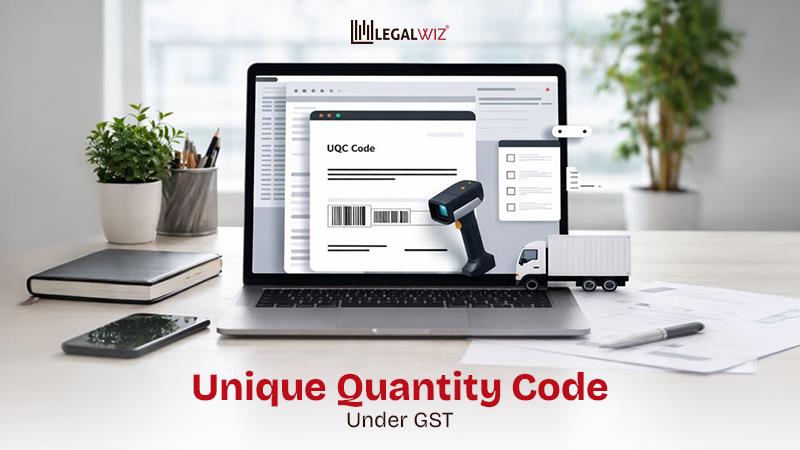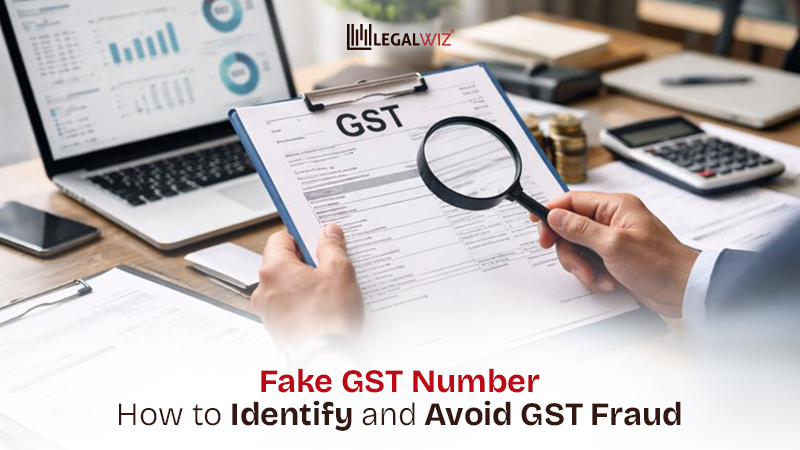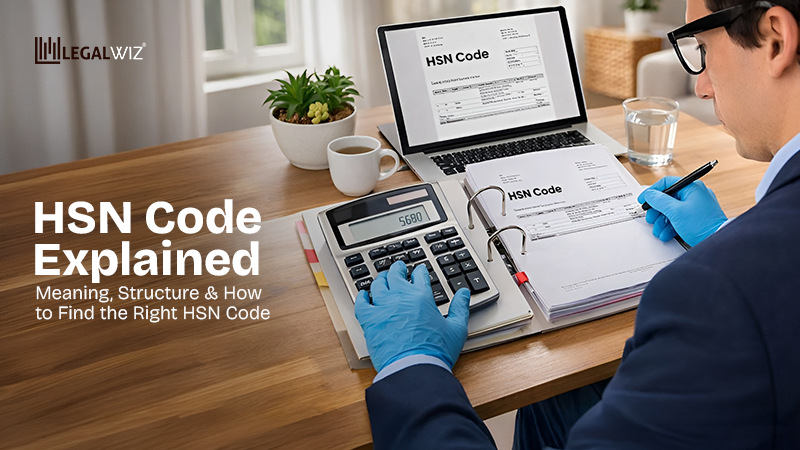Claim Section 80 IAC Tax Exemption for Startups
DPIIT-recognized startups in India have the option to save lacs, even crores in Taxes! Section 80 IAC of the Income Tax Act, is the provision that allows recognised startups to get a 100% tax exemption for 3 consecutive profit making years. This can be said to be one of the most important benefits of startup India registration. You might recall the pitch of Neomotion by Neomotion Assistive solutions LLP in Shark Tank India, they are one of the many startups that have been able to successfully claim this tax exemption.
What is section 80IAC of the Income Tax Act?
Section 80IAC of the Income Tax Act 1961 is a special section in respect of the specified business. It came into effect on 1st April 2017. According to this section, an eligible assessee that is making profits can claim 100% tax deductions for any three consecutive years. People commonly refer to it as 80IAC deduction for eligible startups.
The aim of this provision is to decrease the evasion of taxes. As a result, this tax benefit encourages young entrepreneurs of India to become honest taxpayers.
Who can apply for 80 IAC tax exemption?
Not all DPIIT-recognised startups are eligible to claim the 80IAC deduction. To know if you are eligible, check these points out:
- You have your DPIIT certificate;
- 80 IAC tax exemption is only available to Private Limited Companies or Limited Liability Partnerships;
- The entity incorporation was after 01/04/2016;
- You can claim tax deduction for any three consecutive years out of the first five years of incorporation; and
- The startup claiming 80 IAC tax exemption has to be an original entity, not formed after a split or reconstruction of an existing business.
Process to claim 80 IAC tax exemption
Once you know that you can claim a tax exemption under section 80 IAC of the Income Tax Act, you can apply for the tax deduction claim by following these steps.
Step 1: Log in to startup India portal
The first step in claiming a tax deduction is to create your startup India login. Then, you need to apply for DPIIT recognition certificate. You can do so, by following the steps of the startup India registration process.
Step 2: Fill in the details
After logging in to the portal and selecting ‘claim tax exemption’ you need to fill in the form.
- Name of Startup;
- Date of Incorporation;
- Incorporation/registration number;
- Address and Business location;
- Nature of Business (whether LLP or PLC);
- DIPP number; and
- Contact Details (namely Phone No., E-mail ID, and PAN number of entity).
Step 3: Submit documents required for 80 IAC tax exemption
Apart from the information mentioned above, a startup opting for 80IAC deductions needs to submit the following documents in a PDF format:
- Memorandum of Association (if PLC);
- Limited Liability Partnership Deed (if LLP);
- Board Resolution (if any);
- CA certified balance sheet and Profit and Loss statements;
- Financial Statements for either the past 3 years or for all the years since incorporation;
- Income Tax Returns for either the past 3 years or from the date of incorporation;
- Link to a video pitch of the startup; and
- Pitch Deck in PDF format.
Apart from these documents, if your startup has also received the certificate of angel tax exemption, then you need to provide the details for the same.
Conclusion
Once you have submitted the form for section 80 IAC tax exemption, you need to wait for the approval. As a part of the process, the department will go through all the documents and information provided by you, and give an appropriate outcome. As a result of which, the timeline to get a response or approval from the DPIIT is around 3-9 months. Although, you can keep a track of your application by visiting the startup India portal and clicking on the ‘Dashboard’ of your profile.
Frequently Asked Questions

Diksha Shastri
As a writer, Diksha aims to make complex legal subjects easier to comprehend for all. As a Lawyer, she assists startups with their legal and IPR drafting requirements. To understand and further spread awareness about the startup ecosystem is her motto.








Hi Diksha,
Thanks for the information. We have obtained the 80 IAC certificate. Now how do we proceed forward?
Do we not need to pay the Advance tax ? Or do we pay the advance tax and the govt will later refund the paid tax amount ?
Your response is much awaited .
Hi Lehsang, Thank you for your comment. Use of the term ‘deduction’ denotes that you are required to pay your taxes at a certain percent, and then claim a refund. Which means, even though you are claiming the 80 IAC deduction, you will have to pay the advance taxes and then claim refund in your ITR.
Hello Diksha,
Thanks for to the point and a complete information. What is the next thing to do after we get 80IAC certificate? We have got the DPIIT recognition certificate and will fill the 80IAC form for approval in a couple of days once the required video is ready.
We just wanted to be sure beforehand that we don’t leave anything for a surprise in the end.
Thanks a lot for all the time and effort you are putting in to answer all these queries.
Hello Ankita, Thank you for your kind words and I’m glad I could provide you with helpful information! It sounds like you’re making great progress with your 80IAC certification journey and the DPIIT recognition certificate – congratulations on reaching this stage! Our experts can help you ensure that you do not miss out any important documents or steps in your 80 IAC application. I have forwarded your query and the LW team will reach out to you shortly! Meanwhile, feel free to connect with us directly through support@legalwiz.in!
Hello Mam,
As law states that we can claim deduction for 3 consecutive years, what if we claim exemption in 1st year and 2nd year there is loss for startup? Can startup claim exemption for 3rd and 4th year or does the exemption gets exhausted for 2nd year and claim exemption for 3rd year if there is profits?
Hello Anoop, the use of term ‘consecutive’ is done in the literal sense. This means that you won’t be able to claim the benefit in the 4th year if there is loss in startup in the 2nd year. Also FYI, you get to select any three consecutive years while filing the application. Hence, it is not necessary to claim for the first three years only. Hope this helps! For more information, feel free to reach out to us at support@legalwiz.in
Hello
We just applied for 80 IAC for exemption, and the status of the application is under screening. Do you know what is the processing/evaluation time for the 80 IAC?,
Recently, paid taxes for for the year 2022-23 and once I got 80 IAC certificate, can I get refund for the previous years (2022-23) taxes?
Hello Madhu,
The timeline for processing of 80 IAC applications is not fixed. However, it might take around 2 to 3 weeks for the department to process. Further, with reference to your other query, kindly share with us your contact details or reach out to us at support@legalwiz.in, so our team of experts can guide you accordingly.
Hi this is an amazing article, can you please with one query, what is to be uploaded in the “clarification” box on 80IAC form
Hi Aastha, thank you for the comment. With reference to your query, our team of experts will be able to guide you appropriately. Kindly share your contact details or email us at support@legalwiz.in!
HI If we want to get deduction for the month of FY 22-23.23-24 and 24-25 and we want to apply today for which year we need to upload blancesheet & pl.how much days before tax audit we need to file this form or should be filed after tax audit and at the time of of tax audit do we need to pay tax..
Hi Rajan, Kindly share your contact details with us at support@legalwiz.in and our team of experts will connect with you.
We have applied for the Form 80-IAC but didn’t uploaded the video . is there chances of rejection due to that?
Hi Nisha, yes the video deck of a startup helps in creating an impression with the authorities and hence, is an important submission to claim tax benefits. You can connect with us at support@legalwiz.in for further information on this.
hi, Diksha,
we have just Got the Certificate of Eligible Business U/s 80-1AC, pls advise me what r the next Steps to get the Income Tax exemption n how to proceed further…
How to get the 80 IAC section benefit
Hello, kindly reach out to our team at support@legalwiz.in with your contact details and they will connect with you!
Hello, kindly reach out to our team at support@legalwiz.in with your contact details and they will connect with you!
Hi Diksha,
We have already received confirmation mail for exception under 80IAC. Could you pls help us by assisting what to do now and how to take tax refund for the past years.
Hello, kindly reach out to our team at support@legalwiz.in with your contact details and they will connect with you!
Hi, We are a new startup (8 months old) and would like to avail the tax exemption under 80 IAC after 2-3 years, not immediately. In that case, shall we apply for the 80 IAC Tax exemption now and avail it afterwards (with 10 years of date of incorporation) or wait till we would like to avail the tax exemption (after 2-3 years) and apply then.
Hello, kindly reach out to our team at support@legalwiz.in with your contact details and they will connect with you!